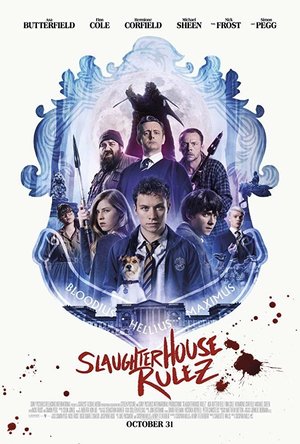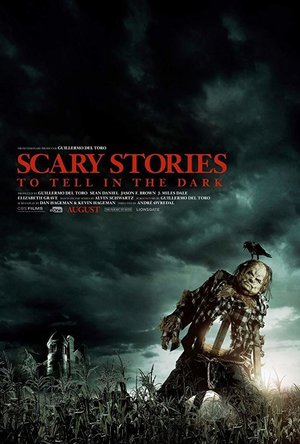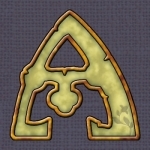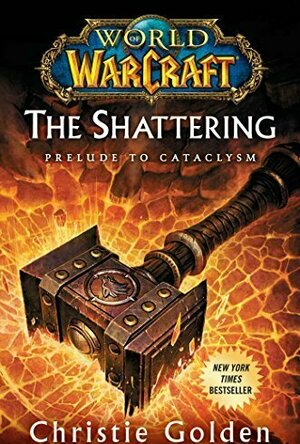Darren (1599 KP) rated Slaughterhouse Rulez (2018) in Movies
Oct 14, 2019
Performances – Michael Sheen and Simon Pegg both look like they are having a lot of fun playing the stuck up British stereotypes which are here for the supporting roles. Finn Cole takes the lead in this film and he does all he can because this film does try to introduce too many different types of characters, not giving the lead enough time to shine, Asa Butterfield does well with his role too, getting to become a supporting character for once, instead of having the weight of the film put on him.
Story – The story here follows the time at a private British boarding school which sees monsters unleashed on the students, who must fight to save themselves. The weirdest way to describe this film would be to say this is the British boarding school version of ‘Attack the Block’, I say this because we are trying to play into a lot of stereotypes for added comedy to the situation. When we break down this alone we get to see how the British private school system comes off, with the student classes, the students believing they are better than anybody else and how the teachers are trapped in their own illusions. Add in the monsters which is what they feel like, which again disappoints along with one serious side to the story which is almost played out for jokes.
Comedy/Horror – The comedy only works if you find taking the piss out of upper-class English funny, this is what the film is set around getting laughs from. The horror is what the monsters do to the people, it would have been nice to get more time with them, once we do it does work well for blood splatter.
Settings – The film is set on the grounds of a private boarding school, this is put in an isolated location which does help make the film get added horror elements involved.
Special Effects – The effects in the film are mixed because it does feel like the thrown buckets of blood which for the budget isn’t what you want to see, though the creatures do look frightening at times.
Scene of the Movie – Monsters unleashed.
That Moment That Annoyed Me – Too much upper-class British jokes.
Final Thoughts – This is a fun enough horror comedy, it will get the laughs in places and has well created creatures.
Overall: British Ripped apart
Lee (2222 KP) rated Scary Stories to Tell in the Dark (2019) in Movies
Aug 21, 2019
That movie version comes from Troll Hunter director André Øvredal and producer/co-writer Guillermo del Toro and attempts a Goosebumps style movie, taking some of the better known stories from the 80+ contained within the books and weaving them into a larger narrative, set in Mill Valley Pennsylvania during the fall of 1968.
It's Halloween and a group of teens are preparing to go out for an evening of trick or treating - applying makeup, getting into their costumes, fishing in the toilet for turds in preparation for a Halloween trick. They head out on their bikes but it's not long before they run into some idiot jocks from their local school, and that turd trick suddenly comes in handy! We've already been introduced to the jocks earlier in the movie, out in a cornfield where they were hitting a creepy looking scarecrow about the head with a baseball bat. Yep, they're certainly going to regret that a little bit later on!
The teens manage to escape the jocks, working their way into a drive through movie that's showing "Night of the Living Dead" and into the car of another teen called Ramón. The group strike up a bond with Ramón after he helps them out and they all decide to go and break into an abandoned local house which is reportedly haunted. They find their way into the basement where legend has it that Sarah Bellows, the daughter of a prominent local family, was locked away in the late 1800s. Horror nerd Stella comes across a book containing short scary stories that were written in blood by Sarah, and she decides to take it with them. As Stella opens the book’s pages, she sees that Sarah’s stories are literally beginning to write themselves - stories that put her friends in some pretty unpleasant situations, stories which immediately become reality the moment they're written. As Stella later puts it, "You don't read the book, the book reads you".
The setup and the scenarios within each story are enjoyable enough and are certainly creepy, however the execution doesn't always work so well and the payoffs aren't quite as scary as I would have liked. The movie also suffers from some slightly dodgy CGI at times too, which doesn't help. That said, I thoroughly enjoyed the final story, and the return to the house in order to try and stop Sarah Bellows worked really well for me. It all ends with a definite opportunity for a sequel and with plenty more scary stories to choose from within the source material, I'm sure we'll be seeing another one soon. Scary Stories to Tell in the Dark taps nicely into the "It" and "Stranger Thing" vibe, with it's group of teens rising up together against evil, and despite it's faults I did have a lot of fun with it. I'm definitely interested in seeing more.

Kick Ass Commandos
Games and Entertainment
App
50% OFF LAUNCH DISCOUNT! Lock and Load! It's time to Kick Ass. Grab your machine-gun, flamethrower,...

My Kingdom for the Princess II HD
Games
App
The innovative mixture of click management and building simulation still works perfectly, and some...
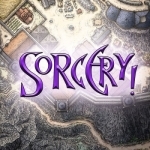
Sorcery! 4
Games and Book
App
An epic adventure through a cursed citadel of monsters, traps and magic. Begin your journey here...

Bubble Mania™
Games and Entertainment
App
Blast into summer with Bubble Mania, a puzzle-popping adventure of epic proportions! A puzzle...

Indian Doll Diwali Celebration
Games and Lifestyle
App
Wishing you Happy Diwali & Prosperous New Year! Diwali or Deepavali is the Hindu festival of lights...

Puzzle Quest 2
Games and Entertainment
App
ATTENTION: This game is not currently compatible with iOS 7.1 on the iPhone 4. *New holiday sale...
<a href="https://diaryofdifference.com/">Blog</a>; | <a href="https://www.facebook.com/diaryofdifference/">Facebook</a>; | <a href="https://twitter.com/DiaryDifference">Twitter</a>; | <a href="https://www.instagram.com/diaryofdifference/">Instagram</a>; | <a href="https://www.pinterest.co.uk/diaryofdifference/pins/">Pinterest</a>;
#8 <a href="https://www.goodreads.com/review/show/3099365981">The Shattering: Prelude to Cataclysm</a> - ★★★★★
<img src="https://diaryofdifference.com/wp-content/uploads/2020/05/Book-Review-Banner-51.png"/>;
The The Shattering: Prelude to Cataclysm by Christie Golden is the eighth book in the World of Warcraft series. The series covers the lore of the characters that are featured in the popular video game World of Warcraft. This is the first book of the series I have read, as they can be read as standalones too. After reading it, I definitely want to read the rest of the series as well!
I received this book as a Christmas gift from my boyfriend, as we both enjoy the World of Warcraft video game. We played together for a while, but then stopped playing retail and started to play again when the Classic WoW came out. I am familiar with most of the lore in the game, but reading a full book about something that happens during this game (in this case - Cataclysm) is a whole new level of epic!
The Shattering has a focus on the events that happen before the Cataclysm, and the events that actually lead to it, from various character's perspectives, from both the Horde and the Alliance. We get to see the character's perspectives, choices and how even small things have a big impact on what's about to happen.
Get ready to meet some legendary characters:
<b>Thrall, the Shaman</b>
When Thrall discovers the elements no longer heed the Shaman's call, he has to travel back to his birth place to seek answers, while leaving the leadership of the Horde with the orcs.
<b><i>"Nature has its own rhythms and reasons. It does not adapt to suit us - we must change to accommodate it."</i></b>
<b>Garrosh, the Orc</b>
Great warrior with a fiery attitude, Garrosh is now in charge of the Horde while Thrall is away. Then the hostility with the Alliance starts to grow. Garrosh's approach is different that what Thrall would have done, and things are about to get more heated.
<b><i>"But it is a work of a leader to hold all possibilities, even the unpleasant - even the unthinkable."</i></b>
<b>Prince Anduin</b>
Anduin finds himself conflicted about who he is and what his purpose is, when a new adventure starts for him. With the help of Jaina and other amazing characters, he slowly begins to realise where he truly belongs.
The story was amazingly written and very powerful! From the very first chapter, I was invested in the characters and the plot. I kept turning page after page until I finished the book. The characters are very much alive and real. They were all different in their own way which is quite hard to accomplish with so many characters involved. I think what I loved the most was how each character had their own purpose, choices to make and a lesson to learn. Even when wrong choices were made, the characters had their own valid reasoning behind their choices.
<b>I highly recommend The Shattering if you are a fan of World of Warcraft, but also if you love adventure books and stories that tackle the battle between good and evil.</b>
